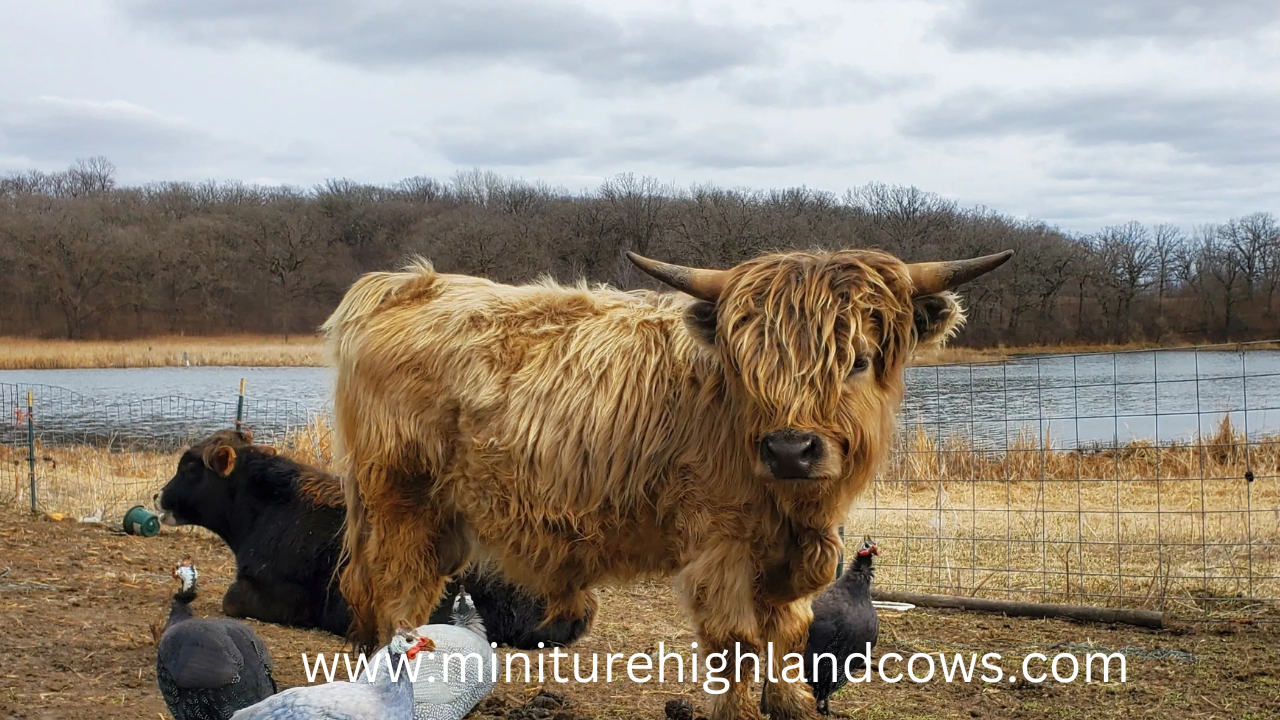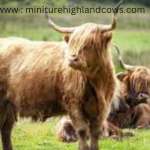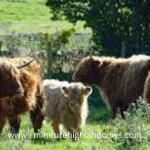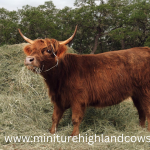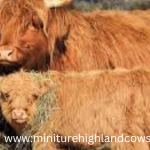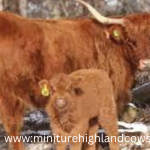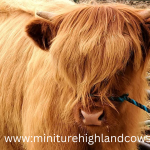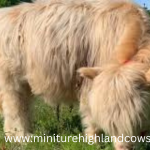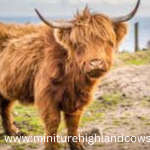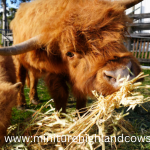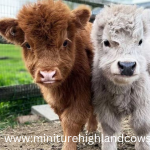Miniature Highland cows have been enthusiastically adopted by small-scale farmers, homesteaders, and even family homesteaders who want a little bit of the unique and charming on the property. Miniature Highlands have everything about them that you want in a traditional Highland cow: their long, shaggy coats, their tranquil personality, and limited milk. Miniature Highland cows are not typically milked, although they do offer extremely small quantities of rich milk that has a high butter fat content- perfect for home dairy purposes. Let’s take a closer look at what to expect when milking the miniature Highland cow and why these cows have taken such a special place in many hearts and homes.
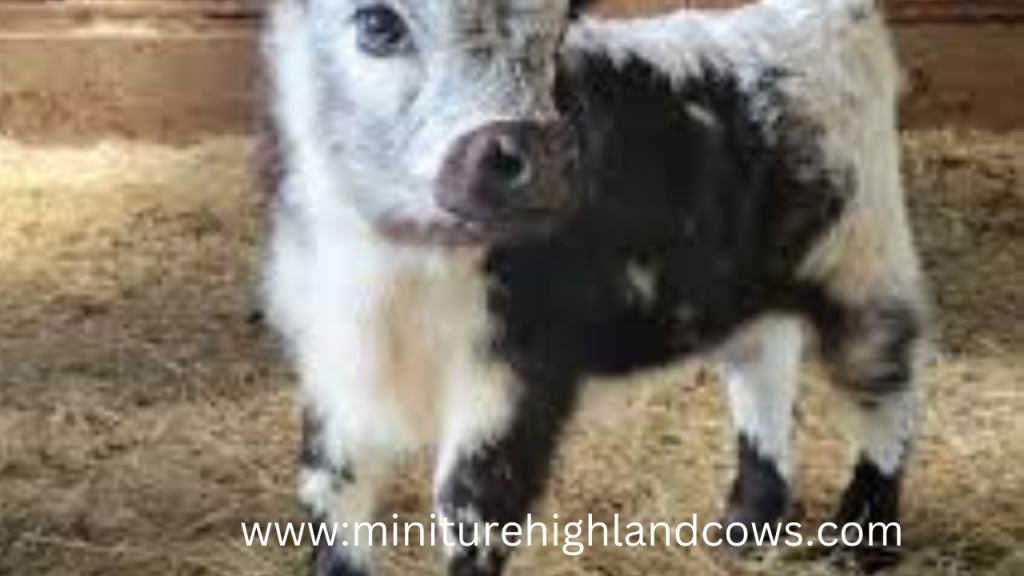
Mini Highland cow for sale
Miniature Highland cows are gaining popularity; this is due to their friendly nature, manageable size, and unique look. Here are a few sources for mini Highland cows for sale:
- Breeders Specializing in Mini Highlands: Any reputable breeder will have some experience with miniatures. Since many breeders specialize, look for breeders that do miniatures. Some breeders offer smaller versions by selection for smaller genetics within Highland cattle or crossbreeding with other smaller breeds.
- Cattle Associations and Listings: Highland Cattle Associations, such as the American Highland Cattle Association (AHCA), might list or can direct you to a good breeder. There are also specialty livestock marketplaces, like LivestockMarket.com, where mini Highland cows can be listed.
- Online Classifieds and Farm Directories: Craigslist, Hoobly, or perhaps local farm directories might list mini Highland cows.
- Social Media Groups: Facebook groups for Highland or mini livestock are a fantastic resource to connect with other breeders and find postings of sales.
Research the selling breeder carefully, obtain any and all health records the breeder will provide and ask him to be up front about the size of the cow as well as the genetics involved, inasmuch as the term “mini” is somewhat subjective.
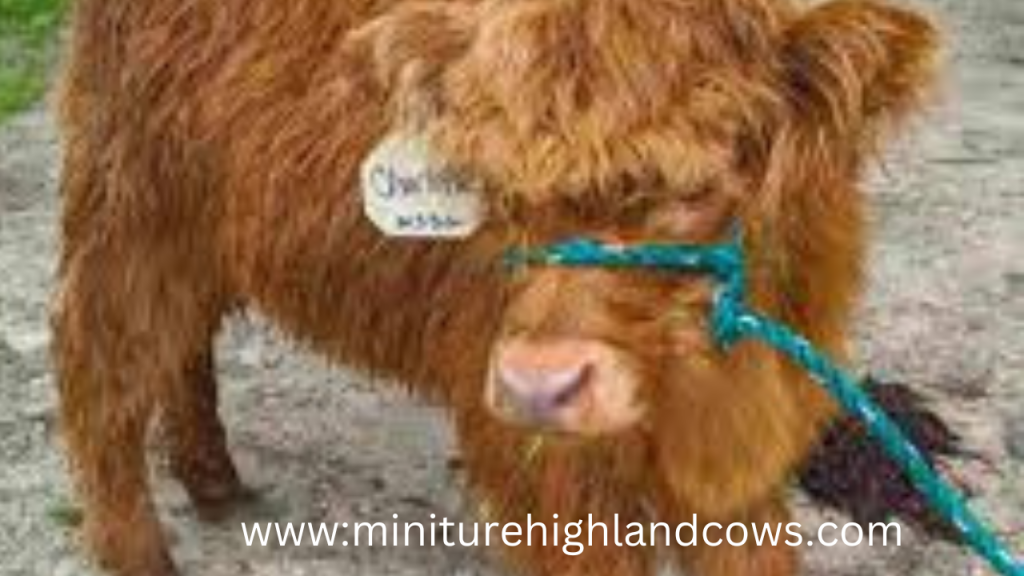
Miniature highland cow milk for sale
This makes it difficult to sell milk from miniature Highland cows because they don’t give much milk. But still possible. Miniature Highlands only give 1 to 2 quarts a day, so supply will be small. It is precisely this smaller milk production that has made it very much in demand for its rich creamy texture and high butterfat content, especially valuable for niche dairy products.
If you are interested in selling miniature Highland cow milk, here is the brief step with things to consider:
- Local and Small-Scale Markets: Target farmers’ markets in your local area and local specialty grocery stores or online farm marketplaces. Many small-scale artisans focus their efforts on producing handcrafted butter, yogurt, cheese, or other dairy products using Highland milk due to its taste and richness. Consumers often seek dairy products of this quality because of their rich, true flavor and rustic, small-batch appeal.
- Direct-to-Consumer Sales: Farm-to-table products will be appreciated by a customer base. Sales and subscription services directly to the customers will really help simplify orders from this limited weekly supply of milk.
- Selling in Specialty Forms: Low milk yields do have the alternative route of specialty dairy products such as artisanal cheeses, butter, or cultured products such as sour cream and yogurt. This can be sold by the unit rather than by the gallon, driving high margin sales and people looking for unique dairy products.
- Legal Provisions: If you sell your raw milk unpasteurized, you must be in compliance with the local and state laws prevailing at the time regarding sales. Direct raw milk sales are allowed from the farm in some states, while others require it to be pasteurized. Certification and inspection may also be mandated.
- Social Marketing: Include social network tools showing the miniature Highland cows and what quality goes into their upbringing. Pictures and stories of the cows themselves might give you strength in your brand and customer loyalty.
- Branding for Niche Appeal: Highland milk has a very distinctive rustic quality about it. The milk or products can be branded as “small-batch,” “high-butterfat,” and “heritage-breed dairy,” thereby appealing to customers looking for artisanal and sustainable farm products.
Miniature Highland cow milk is unlikely to generate high volumes; however, its unique qualities create opportunities for specialty sales, especially in artisanal dairy markets.
The Miniature Highland Cow: About It
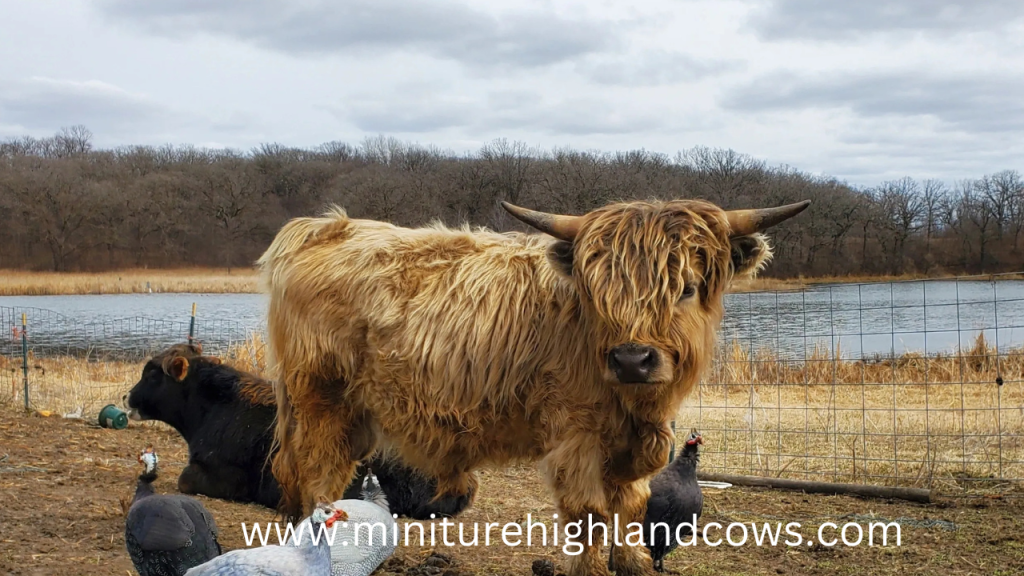
The miniature Highland cow is a version of the real Highland cattle, a hardy breed born in the Scottish Highlands. People easily recognize them with their characteristic long horns and very thick, double-layered coats. These cows suit very cold climates and rugged terrains. With their small sizes, they are manageable, and one can easily care for them even without much acreage or an experienced livestock farmer. Miniature Highland cows stand at approximately 36 to 42 inches at the shoulder, rendering them more manageable than most other cattle breeds.
Highland cows of any size are not typically raised for their milk because they are a “dual-purpose” breed: raised both for meat and to make pastures look pretty, rather than producing dairy. Even still, however, the milk they produce has extremely specific properties that have drawn interest in recent years from homesteaders and small farmers seeking an accommodating cow that can be relatively low-maintenance.
Miniature Highland Cow Production
Compared to other dairy breeds like Holsteins or Jerseys, a miniature Highland cow’s milk yield is relatively low. On average, depending on nutrition, genetics, and the individual health of a miniature Highland cow, they may produce about 1 to 2 quarts a day. That is an incredibly low yield because a standard dairy cow can yield up to over 5 to 8 gallons a day. Nevertheless, it does work very well for extremely small milk requirements and is a very feasible option, though.
As the supply is limited, the milk from a miniature Highland is sure to be used sparingly-more appropriate for a good yogurt, butter, or cheese for home dairy rather than the amount of drinking. Miniature Highlands are not raised for continuous, high-producing milking, so their calving-to-calving milk production period may be shorter than in dairy breeds, lactating for several months post-calving. For families or hobby farmers seeking a small, periodic source of milk rather than high dairy productivity, the miniature Highland would seem to be an excellent choice.
The Highland Milk Quality and Richness
Another distinctive feature of milk from Highland cows is richness. The butterfat content of Highlander milks tends to be somewhat similar to Jerseys, usually between 4-6% or higher in butterfat content. Such would result in rich dairy products in the form of butter, ice cream, and cheese, because of the strong flavoring and silky, velvety texture imparted by the high butterfat content. The richness of milk makes even the smallest amount feel decadent, which is a big draw for those who care about the quality over quantity.
Because of the richness in the composition, milk from a miniature Highland cow is sometimes especially well-suited for use in the manufacture of cultured dairy products like yogurt or sour cream, which prefer a stiffer texture. The milk froths up well for lattes or other specialty drinks, adding an extra level of luxury to homemade coffee drinks. While each quart yields less than those of others, milk from a miniature Highland cow is much more intense with flavor and nutrition.
Practical Milking Considerations for the Miniature Highland Cow
Milking a miniature Highland cow is a very different experience compared to milking a traditional dairy cow. They are not bred specifically for dairy, so you may find you need a little extra patience and a lot of time spent training to let them become accustomed to the process. Beginning with an easy-going cow and gradually establishing a routine can make things a little easier. Some owners simply prefer hand milking for ease; others opt for small, portable milking machines designed specifically for hobby farms.
It must also be recalled that Highland cows, being similar to miniatures, need proper nutrition for optimal health and milk production. High quality feed such as grass or hay, complemented by minerals, will help sustain lactation. They do best in colder climates, but they can thrive under all conditions with proper care and shade.
The Pleasure of Owning a Miniature Highland Cow
But though their milk yield is not very high, mini Highland cows have something very intimate and pleasant about them. Known to be a peaceful and friendly animal, they can very easily become a very good fit for families and even be pets in some cases. With their characteristic long, fluffy coats and gentle eyes, miniature Highlands add aesthetic appeal to a property and can be a source of delight for those who interact with them. Their social nature also makes them wonderful companions, and they often enjoy interacting with other livestock or farm animals.
A miniature Highland cow is a great, well-balanced choice for homesteaders or families looking for a small-scale source of milk. They don’t give much milk, but what they do give is high-quality milk and it makes homemade dairy products taste very luxurious. Of course, the milk that they produce is not the only feature of these cows, as they also offer companionship and pride to those caring for them, making them a wonderful addition to small farms or even hobby homesteads.
Conclusion
Miniature Highland cows are prized not only for their milk. They embody this unique quality where practicality meets a certain charm together with the saving nature requirements. In fact, miniature Highlands provide milk, although little in volume, it is high in butterfat and perfect for those who love homemade dairy products. Moreover, the gentle nature along with the ability of being easily adaptable into domestic lifestyles makes miniature Highlands great to have, whether for small-scale dairy use or just pets. For qualities of companionship and quality, miniature Highland cows are a beautiful and worthwhile investment.
